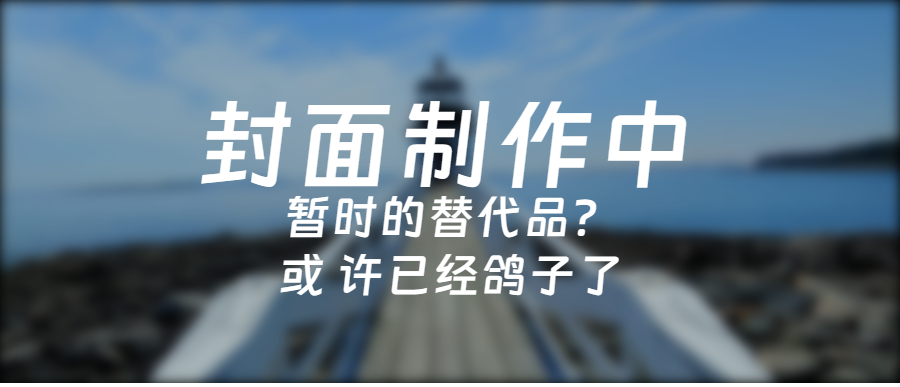
Spring MVC体系结构和处理请求控制器
本文最后更新于 2023-08-16,文章内容可能已经过时,请注意内容的辨别。
Spring MVC体系结构和处理请求控制器
基于注解的处理器
配置
<context:component-scan />
扫描组件<mvc:annotation-driven />
注解驱动@Controller
@Controller用于标记在一个类上,使用它标记的类就是一个SpringMvc Controller对象,分发处理器会扫描使用该注解的类的方法,并检测该方法是否使用了@RequestMapping注解。 @Controller只是定义了一个控制器类,而使用@RequestMapping注解的方法才是处理请求的处理器。 @Controller标记在一个类上还不能真正意义上说它就是SpringMvc的控制器,应为这个时候Spring还不认识它,这个时候需要把这个控制器交给Spring来管理
@RequestMapping
通过请求URL进行映射
1.注解 @RequestMapping 可以用在类定义处和方法定义处。 类定义处:规定初步的请求映射,相对于web应用的根目录; 方法定义处:进一步细分请求映射,相对于类定义处的URL。如果类定义处没有使用该注解,则方法标记的URL相对于根目录而言;
2.@RequestMapping除了可以指定URL映射外,还可以指定“请求方法、请求参数和请求头”的映射请求 注解的value、method、params及headers分别指定“请求的URL、请求方法、请求参数及请求头”。它们之间是与的关系,联合使用会使得请求的映射更加精细。 2.1 method属性可以指定请求的类型,http中规定请求有四种类型:get,post,put,delete。其值在枚举类型RequestMethod中有规定。
@RequestParam
value----参数名 required ----是否必须 defaultValue----默认值
@RequestMapping("/welcome")
public String Welcome(@RequestParam(value="username",
required=false) String username){
……代码省略
}
DispatcherServlet
SpringMVC的核心就是DispatcherServlet,DispatcherServlet实质也是一个HttpServlet。DispatcherSevlet负责将请求分发,所有的请求都有经过它来统一分发。
ModelAndView
当控制器处理完请求时,通常会将包含视图名称或视图对象以及一些模型属性的ModelAndView对象返回到DispatcherServlet。
1、返回指定页面
void setView(View view); void setViewName(String viewName);
2、返回所需数值
ModelAndView addObject(String attributeName, Object attributeValue); ModelAndView addAllObjects(Map<String,?> modelMap);
Model
数据结构:Map类型 常用方法:添加模型数据
Model.addAttribute(String attributeName,Object attributeValue);
在Model中增加模型数据,若不指定key, 则默认使用对象的类型作为key
用map代替model入参是可行的但是一般作为Spring MVC的标准用法,推荐使用Model
ViewResolver
视图解析器
<bean class="org.springframework.web.servlet.view.InternalResourceViewResolver" >
<property name="prefix" value="/WEB-INF/jsp/"/>
<property name="suffix" value=".jsp"/>
</bean>
框架特点
清晰地角色划分 灵活的配置功能 提供了大量的控制器接口和实现类 真正做到与View层的实现无关(JSP、Velocity、Xslt等) 国际化支持 面向接口编程 Spring提供了Web应用开发的一整套流程,不仅仅是MVC,他们之间可以很方便的结合一起
使用idea创建springmvc项目
创建项目
命名
等待jar包下载完毕
创建所需的文件夹
配置环境
配置文件
在resources内创建配置文件
applicationContext.xml
<?xml version="1.0" encoding="UTF-8"?>
<beans xmlns="http://www.springframework.org/schema/beans"
xmlns:xsi="http://www.w3.org/2001/XMLSchema-instance"
xsi:schemaLocation="http://www.springframework.org/schema/beans http://www.springframework.org/schema/beans/spring-beans.xsd">
</beans>Spring-mvc-servlet.xml
<?xml version="1.0" encoding="UTF-8"?>
<beans xmlns="http://www.springframework.org/schema/beans"
xmlns:xsi="http://www.w3.org/2001/XMLSchema-instance"
xmlns:context="http://www.springframework.org/schema/context"
xmlns:mvc="http://www.springframework.org/schema/mvc"
xsi:schemaLocation="http://www.springframework.org/schema/beans http://www.springframework.org/schema/beans/spring-beans.xsd http://www.springframework.org/schema/context http://www.springframework.org/schema/context/spring-context.xsd http://www.springframework.org/schema/cache http://www.springframework.org/schema/cache/spring-cache.xsd http://www.springframework.org/schema/mvc https://www.springframework.org/schema/mvc/spring-mvc.xsd">
<bean class="org.springframework.web.servlet.view.InternalResourceViewResolver">
<!-- /WEB-INF/page/意为页面的路径,.jsp为页面格式-->
<property name="prefix" value="/WEB-INF/page/"/>
<property name="suffix" value=".jsp"/>
</bean>
<!--加载注解驱动-->
<mvc:annotation-driven></mvc:annotation-driven>
<!--扫描控制器类所在的包-->
<context:component-scan base-package="control"/>
</beans>编写web.xml
<?xml version="1.0" encoding="UTF-8"?>
<web-app xmlns="http://xmlns.jcp.org/xml/ns/javaee"
xmlns:xsi="http://www.w3.org/2001/XMLSchema-instance"
xsi:schemaLocation="http://xmlns.jcp.org/xml/ns/javaee http://xmlns.jcp.org/xml/ns/javaee/web-app_4_0.xsd"
version="4.0">
<!--配置该元素用来声明应用范围(整个WEB项目)内的上下文初始化参数
如果我们有配置ContextLoaderListener, Spring会去web.xml中看我们是否有定义contextConfigLocation这个参数,如果有则Spring容器(Bean工厂)会把定义在该xml文件中的bean加载到容器中,那如果没有定义contextConfigLocation参数就要报FileNotFoundException了
-->
<context-param>
<param-name>contextConfigLocation</param-name>
<param-value>classpath:applicationContext.xml</param-value>
</context-param>
<!--创建监听器 作用就是启动Web容器时,自动装配ApplicationContext的配置信息-->
<listener>
<listener-class>org.springframework.web.context.ContextLoaderListener</listener-class>
</listener>
<servlet>
<servlet-name>spring-mvc</servlet-name>
<servlet-class>org.springframework.web.servlet.DispatcherServlet</servlet-class>
<init-param>
<param-name>contextConfigLocation</param-name>
<param-value>classpath:spring-mvc.xml</param-value>
</init-param>
<!--值越小,servlet的优先级越高,就越先被加载-->
<load-on-startup>1</load-on-startup>
</servlet>
<!-- 如果你的DispatcherServlet拦截 *.do这样的URL,就不存在访问不到静态资源的问题。如果你的DispatcherServlet拦截“/”,拦截了所有的请求,同时对*.js,*.jpg的访问也就被拦截了。-->
<servlet-mapping>
<servlet-name>spring-mvc</servlet-name>
<url-pattern>*.do</url-pattern>
</servlet-mapping>
<!-- 配置session过期时间120分钟 -->
<session-config>
<session-timeout>120</session-timeout>
</session-config>
<!-- 配置字符集过滤器 -->
<filter>
<filter-name>characterEncodingFilter</filter-name>
<filter-class>org.springframework.web.filter.CharacterEncodingFilter</filter-class>
<init-param>
<param-name>encoding</param-name>
<param-value>UTF-8</param-value>
</init-param>
<init-param>
<param-name>forceEncoding</param-name>
<param-value>true</param-value>
</init-param>
</filter>
<filter-mapping>
<filter-name>characterEncodingFilter</filter-name>
<url-pattern>/*</url-pattern>
</filter-mapping>
<!--配置错误页面-->
<error-page>
<error-code>404</error-code>
<location>/WEB-INF/page/errors/error.jsp</location>
</error-page>
<error-page>
<error-code>500</error-code>
<location>/WEB-INF/page/errors/error.jsp</location>
</error-page>
<error-page>
<error-code>414</error-code>
<location>/WEB-INF/page/errors/error.jsp</location>
</error-page>
<error-page>
<error-code>505</error-code>
<location>/WEB-INF/page/errors/error.jsp</location>
</error-page>
<error-page>
<error-code>400</error-code>
<location>/WEB-INF/page/errors/error.jsp</location>
</error-page>
<error-page>
<exception-type>java.lang.NullPointerException</exception-type>
<location>/WEB-INF/page/errors/error.jsp</location>
</error-page>
<!-- Session过率器 -->
<filter>
<filter-name>sessionValidateFilter</filter-name>
<filter-class>filter.SessionValidateFilter</filter-class>
</filter>
<filter-mapping>
<filter-name>sessionValidateFilter</filter-name>
<url-pattern>/page/*</url-pattern>
</filter-mapping>
</web-app>package filter;
import java.io.IOException;
import javax.servlet.Filter;
import javax.servlet.FilterChain;
import javax.servlet.FilterConfig;
import javax.servlet.ServletException;
import javax.servlet.ServletRequest;
import javax.servlet.ServletResponse;
import javax.servlet.http.HttpServletRequest;
import javax.servlet.http.HttpServletResponse;
import javax.servlet.http.HttpSession;
public class SessionValidateFilter implements Filter{
@Override
public void destroy() {
// TODO Auto-generated method stub
}
//是否从登陆页面过来的过滤
@Override
public void doFilter(ServletRequest req, ServletResponse resp, FilterChain chain)
throws IOException, ServletException {
System.out.println("执行了");
HttpServletRequest request =(HttpServletRequest)req; //将req强转成HttpServletRequest就可以调用它的方法了
HttpServletResponse response =(HttpServletResponse)resp;
HttpSession session = request.getSession();
if(session.getAttribute("name")!=null) {
chain.doFilter(request,response);
}else {
response.sendRedirect("../login.jsp");
}
}
@Override
public void init(FilterConfig filterConfig) throws ServletException {
// TODO Auto-generated method stub
}
}控制台中文乱码问题
打开idea安装目录,选择xxxxx.vmoptions 在下面加上-Dfile.encoding=UTF-8
打开IntelliJ IDEA>File>Setting>Editor>File Encodings,将Global Encoding、Project Encoding、Default encodeing for properties files这三项都设置成UTF-8
如果是web项目,在菜单栏找到run->Edit Configrations,设置 vm option为 -Dfile.encoding=utf-8
顺便说一句tomcat里的配置
on ‘update‘action选项 选择update classes and resources
如果出现out文件夹下内容与web下不一致,请重新配置tomcat
- 感谢你赐予我前进的力量



